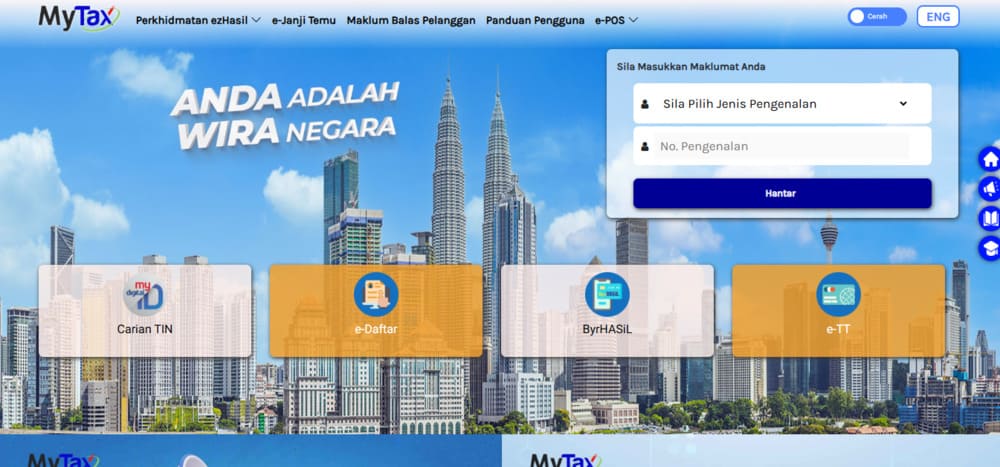The e-invoice Malaysia implementation date is nearing, and businesses must get ready for this change in the tax reporting system.
As part of the government’s effort to streamline invoicing and improve tax compliance, the e-invoicing system will be mandatory for all eligible businesses, starting with large corporations and gradually expanding to smaller ones.
This article covers the key dates, phases, and requirements for e-invoice adoption in Malaysia, helping businesses understand when and how they need to comply. Read on to learn more about the implementation timeline and how to ensure a smooth transition.
Key Takeaways
- Be aware of your e-invoice implementation date to stay compliant and avoid penalties.
- Check if your business qualifies for exemptions and plan accordingly.
- Use the interim relaxation period to ensure a smooth transition to e-invoicing.
- Stay on top of e-invoicing requirements to ensure your business remains compliant.
- Embrace the efficiency and cost savings of e-invoicing for streamlined operations.
Find Your Deadline: E-Invoicing Malaysia Implementation Dates by Revenue Tier
E-invoicing in Malaysia will be implemented in stages, determined by the annual revenue of businesses. Here’s an overview of the key dates for each revenue tier, with the latest updates as of June 2025:
| Revenue Tier (Annual Turnover) | Implementation Date | Notes |
| Above RM100 million | 1 August 2024 | Mandatory adoption for large businesses. |
| RM25 million – RM100 million | 1 January 2025 | Mandatory for medium-sized businesses. |
| RM5 million – RM25 million | 1 July 2025 | Applicable to businesses in this revenue range. |
| RM1 million – RM5 million | 1 January 2026 | Smaller businesses required to comply. |
| RM500,000 – RM1 million | 1 July 2026 | Final phase for smaller businesses |
| Below RM500,000 | Exempt | Not required to implement, though encouraged to adopt by 1 July 2026. |
For new businesses established between 2023 and 2025, with an annual turnover of at least RM500,000, the e-invoice implementation date is 1 July 2026.
For new businesses starting from 2026 onwards, the implementation date is either 1 July 2026 or the date they begin operations, whichever is later.
However, if the first year’s turnover is below RM500,000, the e-invoice implementation date will be 1 January of the second year, once the business’s annual turnover reaches RM500,000.
Ready to open SDN BHD? Discover how setting up your new company can align with e-invoicing requirements for smoother tax compliance and business operations.
Who’s Exempt? Special Cases for E-Invoice Malaysia Implementation

While most businesses in Malaysia are required to adopt e-invoicing, there are some exemptions and special cases based on the nature of the business or its turnover.
- New Businesses (2023–2025): Businesses established during this period with turnover under RM500,000 are exempt until their revenue exceeds this threshold.
- Businesses Established from 2026: E-invoicing is mandatory from day one, but if turnover is below RM500,000, compliance starts from the second year.
- Consolidated E-Invoices: Allowed for transactions below RM10,000 until 31 December 2025. From 1 January 2026, individual invoices will be required for all transactions over RM10,000 and consolidated E-invoices will not be allowed.
Certain industries like automotive, aviation, and construction will need individual e-invoices regardless of the transaction value.
Easing into E-Invoicing: Key Details on the Interim Relaxation Period
The interim relaxation period offers businesses some breathing room as they transition to the mandatory Malaysia e-invoice system
The relaxation period is six months from the mandatory e-invoicing implementation date for each revenue tier, allowing businesses time to adapt to the new e-invoicing rules before penalties are enforced.
| Revenue Tier (Annual Turnover) | Interim Relaxation Period |
| Above RM100 million | 1 August 2024 – 31 January 2025 |
| RM25 million – RM100 million | 1 January 2025 – 30 June 2025 |
| RM5 million – RM25 million | 1 July 2025 – 31 December 2025 |
| RM1 million – RM5 million | 1 January 2026 – 30 June 2026 |
| Up to RM1 million | 1 July 2026 to 31 December 2026 |
During this period, businesses can continue to do consolidated invoicing online, and they will have extended timelines to comply with the new system.
Businesses that fail to meet the requirements within the relaxation period will not face prosecution, provided they follow the relaxed guidelines.
Stay Ahead: E-Invoice Malaysia Compliance and Penalties You Need to Know

Businesses must comply with the e-invoicing requirements once their implementation date arrives. Non-compliance can lead to penalties under Malaysia’s tax laws:
- Penalties for Non-Compliance: Businesses that fail to submit e-invoices as required may face fines or other enforcement actions under the Income Tax Act 1967.
- Monitoring: The Inland Revenue Board of Malaysia (IRBM) will monitor compliance through the MyInvois platform and other reporting tools.
It is crucial for businesses to stay informed about their deadlines and ensure they are ready to comply to avoid penalties and ensure smooth tax reporting.
How E-Invoice Works in Malaysia and Its Benefits for Your Business

E-invoicing works by generating invoices in a digital format (typically XML or JSON), which are then submitted to the Inland Revenue Board (IRBM) via the MyInvois portal.
The system verifies the invoice in real-time and sends confirmation to both the issuer and recipient.
This digital invoice processing ensures accuracy and compliance with Malaysian tax regulations, providing businesses and the government with streamlined, secure transactions.
- Increased Efficiency: E-invoicing eliminates manual data entry, reducing the risk of errors and speeding up the invoicing process.
- Cost Savings: Businesses save on paper, printing, and administrative costs associated with traditional invoicing.
- Enhanced Transparency: E-invoices help improve tax compliance by providing a clear, traceable record of transactions, reducing the risk of fraud.
- Faster Payments: With automated invoicing, payments are processed more quickly, improving cash flow management.
- Global Standardisation: E-invoicing aligns Malaysia with international digital invoicing standards, making cross-border transactions easier.
Want to ensure full compliance? Explore the e-invoice specific guideline to understand the detailed requirements and stay ahead of the curve.
Let NKH Chartered Accountants Guide You Through the Transition of E-invoicing

NKH Chartered Accountants, a leading accounting firm in Klang, provides comprehensive support to businesses transitioning to Malaysia’s e-invoicing system. We ensure that companies comply with the new regulations while optimising their financial operations.
- E-Invoice Integration: NKH offers seamless integration of the MyInvois system with your existing accounting software, ensuring accurate and real-time compliance.
- Tax Optimisation: With corporate tax planning in Klang, our team identifies available tax exemptions and credits under the SST framework, helping reduce tax liabilities while maintaining full compliance.
- Process Restructuring: NKH assists businesses in adjusting their internal invoicing workflows, reducing administrative burdens and enhancing operational efficiency.
- Regulatory Compliance Training: NKH provides ongoing staff training for finance teams to ensure adherence to e-invoicing and SST regulations, ensuring businesses stay ahead of compliance requirements.
With our expertise in accounting services in Klang, NKH helps businesses comply with the e-invoicing mandate and their financial operations for better tax management and smoother business processes.
Conclusion
The implementation of e-invoicing in Malaysia is a significant step towards digital tax reporting and improving business efficiency.
By understanding the implementation timeline, exemptions, and compliance requirements, businesses can prepare in advance and avoid potential penalties.
While the transition is phased based on revenue tiers, it’s important to stay ahead of the deadlines and ensure full compliance.
Contact NKH Chartered Accountants today for expert assistance with e-invoicing compliance and to ensure your business is fully prepared.
Kim Heng is an accounting and taxation professional whose sterling reputation has drawn countless clients to the NKH Group. When the GST was first introduced, he was commissioned to give 100+ talks on GST implementation as well as over 20++ talks on E- Invoice implementation by multiple businesses and industry associations, showing the depth of their confidence in his expertise. In the following years, Kim Heng would go on to share his knowledge on (among others) branding, tax planning, and fundraising at 20+ seminars organised by business associates that were widely attended by the public. He has over 20 years of experience consulting and advisory on taxation, corporate structure planning, business valuer, company secretarial administration, constitution advisory, and etc.





